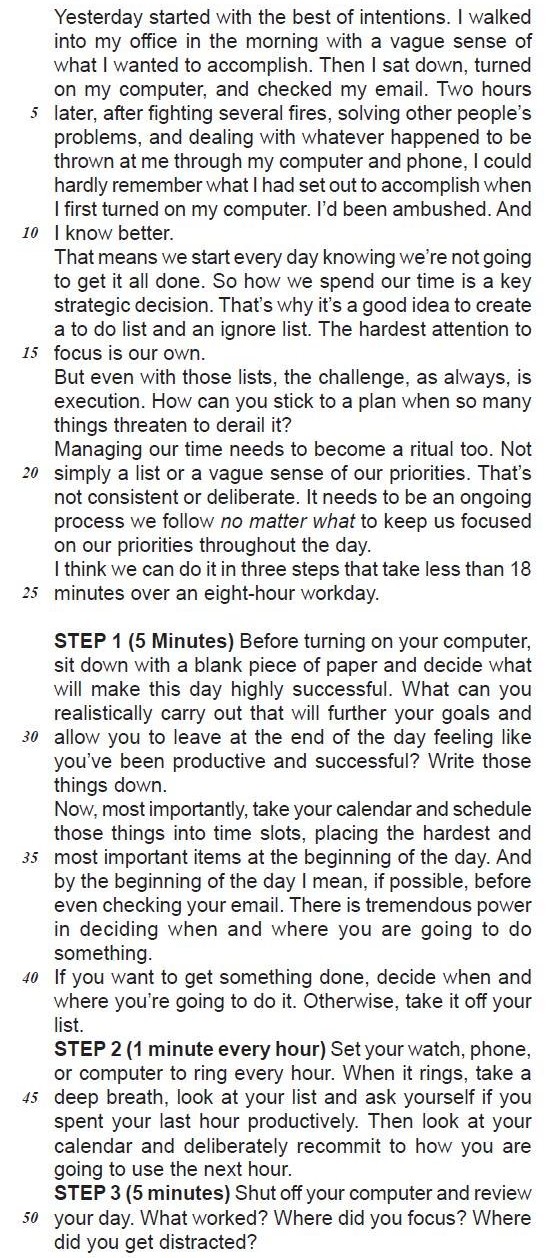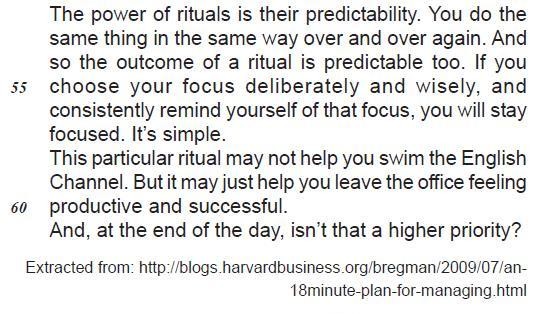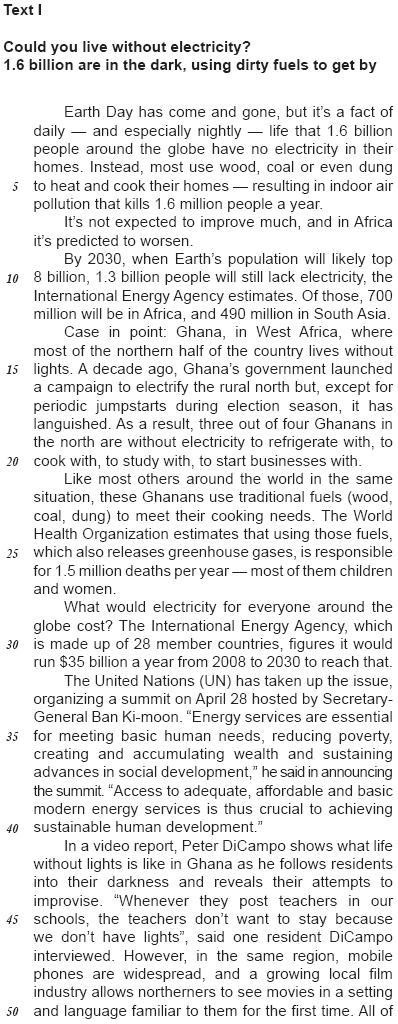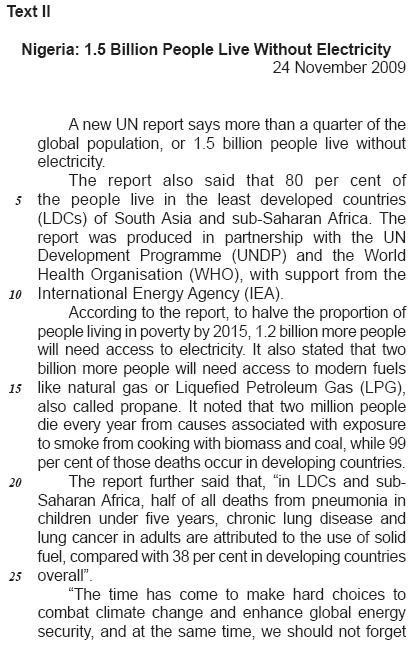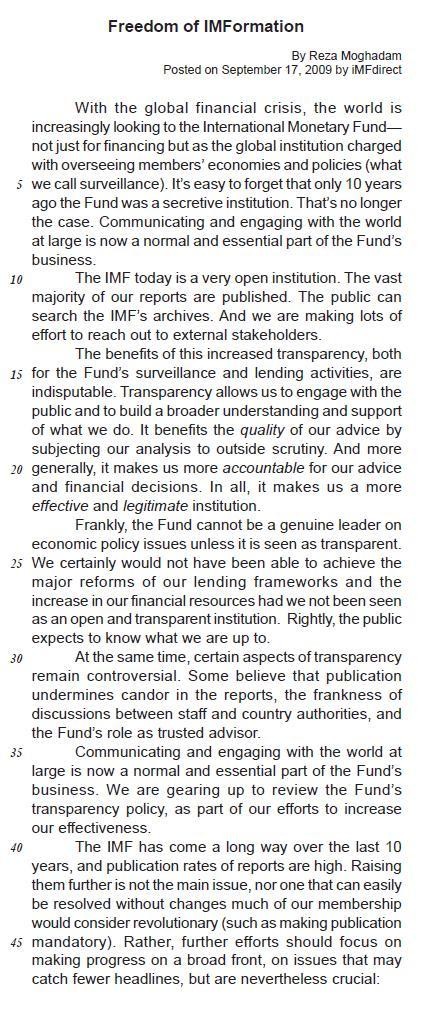Read the book review below and answer questions 7,
8, 9 and 10.
YOUTH PROLONGED: OLD AGE POSTPONED
by Robert Weale (King's College London, UK)
What exactly is human ageing? Can it be slowed down?
These questions have puzzled scientists and laymen alike
for generations, and continue to do so today. The author
addresses these thought-provoking issues by challenging
pre-conceived notions of age-perception, age-acceptance
and inter-age relations. Pertinent matters of age-related
communication are dealt with, and the reader is treated to
a grand tour of the latest theories of ageing, age-related
biological changes and age-related diseases, such as
Alzheimer's Disease. Here, the author's expertise in agerelated
eye diseases truly comes into its own.
Weale's unique work not only underlines important
genetic and avoidable risk factors but gives ample
consideration to possible consequences stemming from
different early lifestyles.Readers will re-consider their
ideas of what it means to age, and gain a better
understanding of what can and cannot slow down the
process of ageing.
Fonte: http://www.worldscibooks.com/ December, 2009.
"Pertinent matters of age-related communication are dealt with, and the reader is treated to a grand tour..." is in the passive voice. The author uses the passive voice to focus mainly on the actions. The same sentence in the active voice would be:
Based on the meanings of the words in the text, it can be said tha
In "...additional demand for oil could be met by nonconventional methods," (lines 52-53) the verb form could expresses
An 18-Minute Plan for Managing Your Day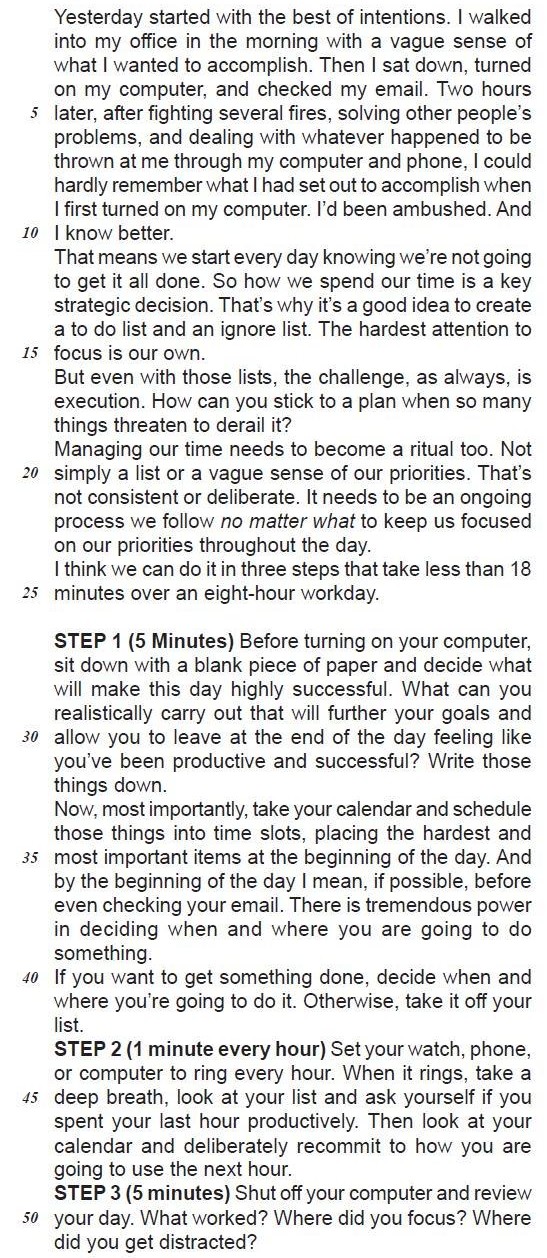
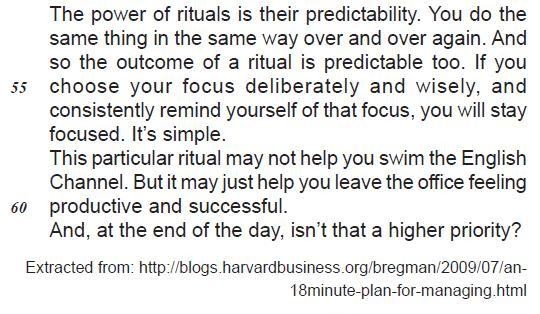
Check the only alternative in which the expression in bold type has the same meaning as the item given.
In "we will only have to make sure that these are energy efficient." (line 25-26), the pronoun 'these' refers to
In "It also stated that two billion more people will need access to modern fuels." (lines 13-14 - Text II) , "it" refers to
In paragraph 9 (lines 50-54), Alexis Madrigal shows concern for the
. The expression in boldtype and the item in parenthesis are semantically equivalent in
Based on the meanings in the text, the option in which the two words are synonymous is:
In The twentieth century has been called the hydrocarbon century due to the abundance of fossil fuels, and their contribution to human development. (lines 1-3), due to can be substituted by:
In questions 46 to 50 you will be analyzing a series of reading activities that an EFL (English as a Foreign Language) teacher has prepared for her students in the 8th grade (8o ano do Ensino Fundamental).
ACTIVITIES 3 and 4 (presented in Questions 48 and 49) are examples of highly appropriate assignments in EFL classes since they conform to several of the guidelines expressed in the PCNs (Parâmetros Curriculares Nacionais: terceiro e quarto ciclo do Ensino Fundamental Língua Estrangeira) reproduced below.
The only guideline that is NOT addressed by the proposals of Activity 3 and 4 is



